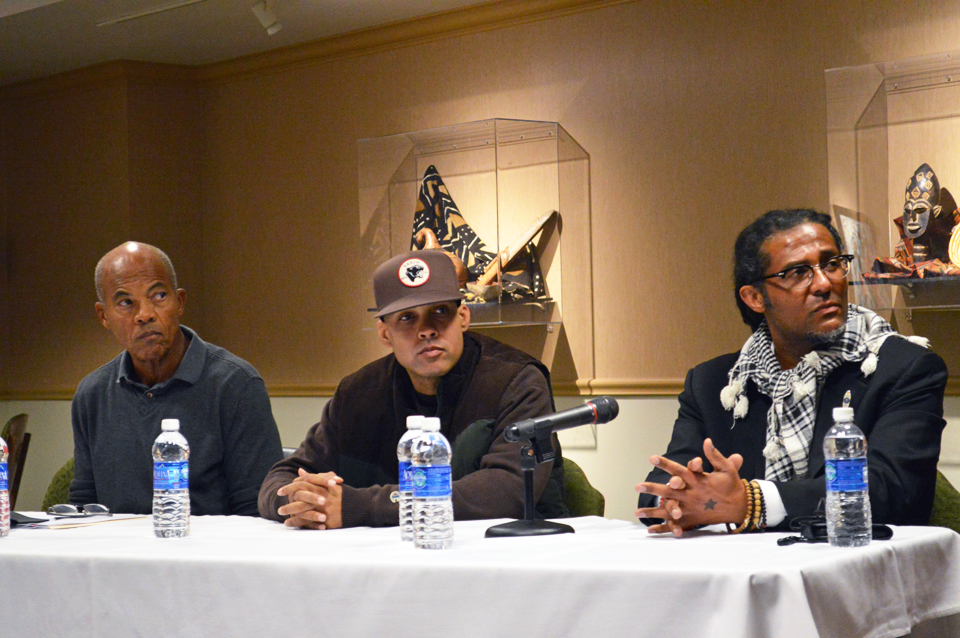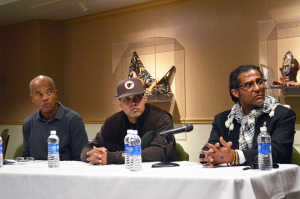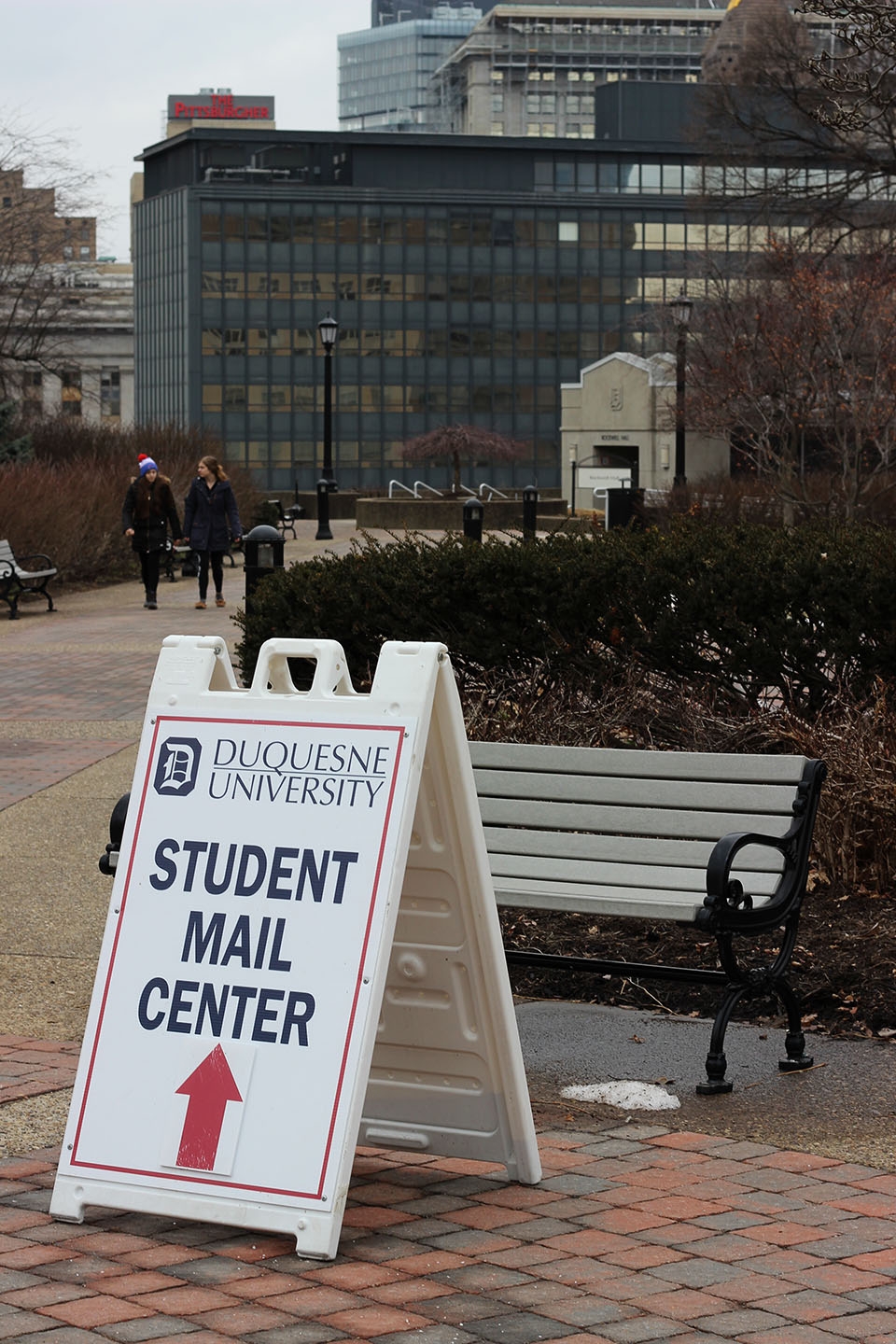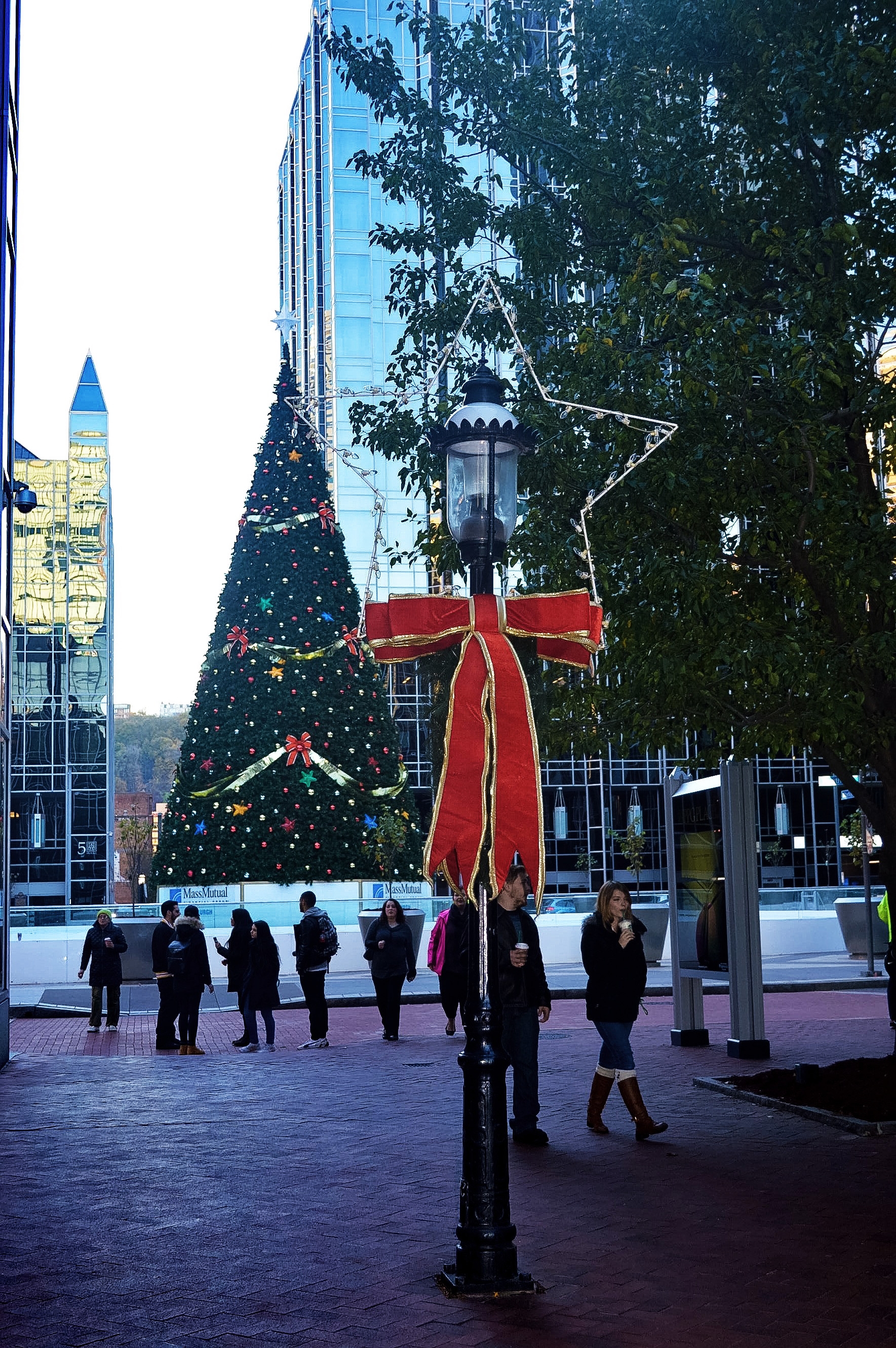

By Jen Cardone | The Duquesne Duke
John Edgar Wideman, a Pittsburgh native and 10-time award-winning novelist, offered insight on think tanks as tools for social justice at a symposium Oct. 10.
Wideman read an excerpt from his memoir Brothers and Keepers, which is about his incarcerated brother Robert, who holds a mandatory life sentence at the Pittsburgh State Correctional Institution for a crime he may not have committed.
Wideman’s brother is an inmate participant in Duquesne’s Inside-Out program, which helps students understand what goes on in the minds of inmates. It is a semester-long course where 15 to 18 “outside” students meet the same number of “inside” incarcerated inmates, including Robert Wideman. The two groups take a class together at the prison that discusses issues of crime, justice, freedom and inequality.
Associate professor of sociology Norman Conti, who heads the program, said the course “takes a room in a prison and turns it into a university.”
Conti is also leading a think tank in collaboration with seven men serving time at SCI Pittsburgh. The goal of the project is to advance community engagement across campus.
The panel discussion focused on the mistreatment of colored people and criminals by the social justice system. Panelists talked about think tanks and how they can be used as mechanisms to work toward understanding social justice.
On the panel, activist and rapper Jasiri X said he wants to build more cooperation with community police so the ones who are causing harm are not reinstated.
“Officers who commit crimes are back on the force,” he said. “Police want to make [the black man] a criminal.”
Tony Gaskew, director of the criminal justice program at the University of Pittsburgh Bradford branch, said social justice is not always fair.
“America has never gotten over its original sin of genocide of African Americans,” Gaskew said. “The criminal justice system is a component born from those seeds.”
Gaskew said he believes there are three kinds of people: those who commit crimes, those who enforce laws and a striking majority of those who do nothing when they see crime in action.
Wideman said it has to be the young people who go out and change the system, because they are the ones with the most at stake.
“It’s too late for me,” Wideman said. “I’ve already tried.”




